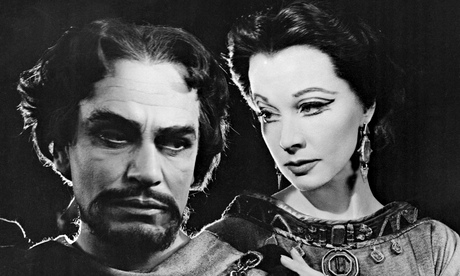
All through life one is changed by great books. Reading Joseph Conrad’s Nostromo for the first time a couple of years ago gave me a whole new understanding of the destructiveness of material obsession. But one is most impressionable in one’s teens; and, as a notoriously late developer who failed his 11-plus, I was about 16 when books really started to affect me profoundly.
One that certainly changed me was IA Richards’ Practical Criticism. I was encouraged to read it by a kindly English teacher and woke up to the ability of close textual analysis to enhance the joy of poetry. I often wonder if anyone still reads Richards today.
But if I had to pick a book that nourished my love of theatre and undoubtedly affected my choice of career, it would be one I found for myself in a secondhand bookshop in Leamington Spa: He That Plays the King, written by the precociously brilliant Kenneth Tynan when he was 23. It was the book that turned me on to the intoxicating pleasure of theatre criticism and – well-thumbed and much borrowed from – it has stayed with me ever since.
I already knew about Tynan when I read the book in 1956. He was by then the drama critic of the Observer and famous for his endorsement of John Osborne’s Look Back in Anger at the Royal Court and his lethal attacks on fossilised drawing-room dramas. But He That Plays the King, published in 1950, gives one a rather different Tynan. This is a young man’s book recording his infatuation with heroic acting, eccentric comedians and inventive directors of the calibre of Peter Brook and Tyrone Guthrie.
Reading it again today, one is struck by its rightwing romanticism, its lack of interest in new drama, its belief that tragic heroes have to descend from a great height. But it also contains the best writing about acting since Hazlitt and, back in 1956, chimed with my own recent exposure at Stratford-on-Avon to the luminous performances of Laurence Olivier, John Gielgud and Peggy Ashcroft – the giants of their profession.
Today everything is different. We prize ensemble acting over individual stars. We also seem to be heading increasingly towards a directors’ theatre, where the ability to rework standard classics takes precedence over new writing: look at the fervid excitement created by current productions of The Crucible and A Streetcar Named Desire. But He That Plays the King is a paean to great actors. And back in 1956 – having recently seen Olivier play Macbeth, Titus Andronicus and Malvolio – I was thrilled by Tynan’s ability to describe and pin down the great man’s peculiar genius.
Writing of Olivier’s Richard III, Tynan seizes on its sexual contradictoriness: “I remember the deep concern, as of a bustling spinster, with which Olivier grips his brother George and says, with sardonic, effeminate intentness, ‘We are not safe, Clarence, we are NOT safe’ while, even as he speaks, the plot is laid which will kill the man.” Yet, describing Olivier’s Justice Shallow in Henry IV Part Two, Tynan seizes on the actor’s ability to convey what he terms “the flavour of sharp, masculine kindness”. As Shallow, he “pecks at the lines, nibbles at them like a parrot biting on a nut; for all his age, he darts here and there nimbly enough, even skittishly: forgetting nothing, not even the pleasure of Falstaff’s page, that ‘little tiny thief’.”
But if Tynan was enamoured of Olivier, he was also alert to the miniaturist precision of Alec Guinness. He is especially eloquent on the latter’s performance as Abel Drugger, the easily tricked tobacconist in Ben Jonson’s The Alchemist. “A solid little fellow, you felt,” writes Tynan, “and how eager to help! At last he puts in a tolerable contribution to the conversation. O altitudo! His face creases ruddily into modest delight and he stamps his thin feet in glee.”
I admit Tynan’s limitations. He rarely writes about women with the same enthusiasm as he does about men. Indeed, he is downright rude about Sybil Thorndike’s Jocasta and Eileen Herlie’s Medea, of which he says “she looks about as savage and exotic as the advertisement in which the lady discovers blood on her toothbrush”. He also sometimes falls, as in his account of Frederick Valk’s Othello, into extravagant hyperbole. But he has a priceless gift for getting to the heart of a great performance and for capturing the timeless appeal of physical comedy. Reading his account of Sid Field and his appearance as a figure of aged decrepitude with an uncontrollably rotating right hand, you realise that this is the ancestor of the gag about the helplessly shaking, plate-carrying waiter in Richard Bean’s One Man, Two Guvnors.
Even as I read Tynan’s book at 16, I knew theatre was radically changing: I remember presumptuously giving a talk to the sixth form at Warwick School on the new phenomenon of The Angry Young Man. But Tynan’s book taught me that criticism, at its best, gives you the sensation of being there on the night, and has the graphic vividness of a Daumier cartoon. No one today, least of all myself, can begin to match Tynan’s voluptuous prose. Nor does any journalist-critic today have the space to write several thousand words about a single performance. But as a withdrawn, nervous adolescent in Leamington Spa, I was enthralled by Tynan’s ability to make criticism seem a glamorously exciting profession in which one was a witness to great events. For better or worse, I knew after reading He That Plays the King exactly what I wanted to be in later life.

